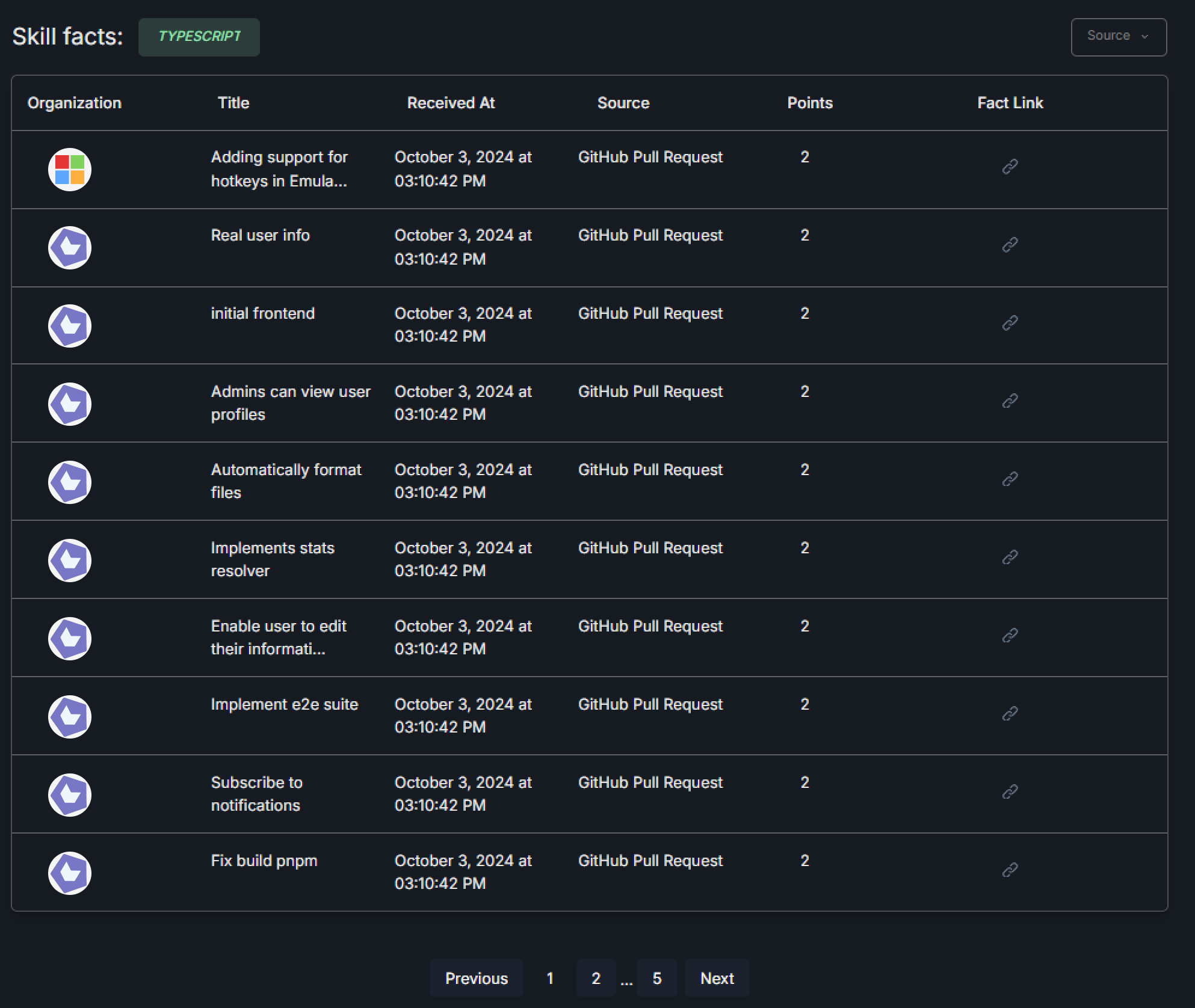Recognize Employee Talent with Rekog
At Rekog, we envision a future where organizations fully recognize and utilize their workforce’s talents. Our mission is to provide tools that give organizations deep insights into their teams' strengths and growth areas. While Rekog can be adapted to many professions, we’re starting with software engineers because that’s where our experience lies.
AI-Curated Employee Profiles: Let the Work Speak for Itself
Rekog automatically generates employee profiles from their daily activities, giving a real-time, authentic snapshot of their skills and contributions. What makes these profiles unique is that they are not editable by employees. This ensures they are accurate and reflect genuine performance.
In other words, you don’t tell Rekog who you are—your work does. This philosophy is grounded in the belief that traditional self-assessments are prone to bias and inaccuracies. To represent an individual's strengths accurately, a data-driven approach is essential. Rekog captures actual activities—like code commits, Slack responses, or contributions on Stack Overflow—and turns them into verifiable skill markers.
For example, if you commit Terraform code to a repository, Rekog automatically credits you with infrastructure-as-code and Terraform expertise. If you respond to a question in Slack and provide a helpful response to your peers, that is translated into a skill that was required to know the answer. These are concrete, fact-based records that reflect your skills and their evolution throughout time.
The Anatomy of an AI-Curated Profile
An employee's profile prominently features their skills, as shown in the image below. These skills are extracted from real activities across integrated platforms and are organized from the most well-validated to the least.

When you click on a skill, you’re taken to the page shown below that lists all the factual contributions supporting that skill, including direct links to the original activity.

We understand that not all skill facts should be public. Some contributions are private to an organization. In such cases, these facts are still captured but only visible within that organization. The goal is to create a transparent, validated skillset that can be trusted internally, without exposing sensitive data.
In the background, Rekog runs reliability checks on each activity to ensure data integrity. For example, contributing C code to the Linux kernel results in a 100% reliability score for that c-programming-language skill. On the other hand, contributing to a small, unvalidated project may receive a lower reliability score. While these scores don’t surface in the UI yet, they play a crucial role behind the scenes in verifying the skill.
Additionally, all this data is searchable and easily discoverable, making it simple for managers and team members to find people with a particular skill quickly.
Why Skills Shouldn't Be Left to Chance
One of our engineers shared a personal story that illustrates why Rekog was built. While consulting at a startup, he bumped into another engineer during a coffee break. What began as a small-talk question—"What are you working on?"—turned into a two-hour monologue about Kubernetes. The following day, purely by chance, that engineer recommended him for an opportunity related to Kubernetes, that he overheard at his current client.
It is surprisingly easy for talent to go unnoticed unless you're in the right place at the right time. Seneca famously said, "Luck is what happens when preparation meets opportunity." But opportunity itself, requires luck! We have some recursion going on here!
What if we could reduce the role of luck and ensure that skills and opportunities naturally find each other?
Rekog does just that by making each employee’s talents visible and accessible. It shouldn't be a mystery what your colleagues or team members are good at—it should be easy to discover, share, and collaborate based on real skills. With an accurate, continually updated profile, managers can match people to tasks they excel at, and employees can find opportunities to apply their strengths and passions. This fosters a workplace where talent isn’t left to chance; it’s recognized, cherished, and fully utilized.
Aligning Skills with Challenges: Preventing Stagnation and Quiet Quitting
You may be familiar with the Peter Principle—the idea that people are promoted until they reach a role where they’re no longer competent. But there’s another issue that’s equally pervasive in today’s workplaces: stagnation. Over time, employees may find themselves stuck doing repetitive tasks that don’t inspire them or help them grow, which can lead to disengagement and underutilization of their true potential. This disengagement can eventually evolve into "quiet quitting," where employees are still present but have mentally checked out, no longer contributing at their full capacity.
Not all employees are affected by this in the same way. Some thrive on routine and repetition, excelling at tasks that demand consistency. Others, however, need variety and challenge to stay engaged and motivated. The problem arises when managers don’t have a clear understanding of what each individual needs or excels at, resulting in mismatched roles and responsibilities.
Rekog makes a transformative difference by providing managers with real-time insights into their team members’ skills, and strengths. Rekog helps prevent stagnation before it sets in. It allows managers to align employees with tasks that suit their skills and preferences—whether those tasks are repetitive and detail-oriented or dynamic and challenging.
In this way, Rekog ensures that every employee is working in a role where they can thrive. It helps organizations match the right people to the right tasks, making work more fulfilling for employees and more productive for the company.
This is a win-win-win scenario: employees feel more fulfilled and engaged, the company thrives with increased productivity, and the world benefits from everyone contributing their best.
The future of work is transparent, data-driven, and human-centered.